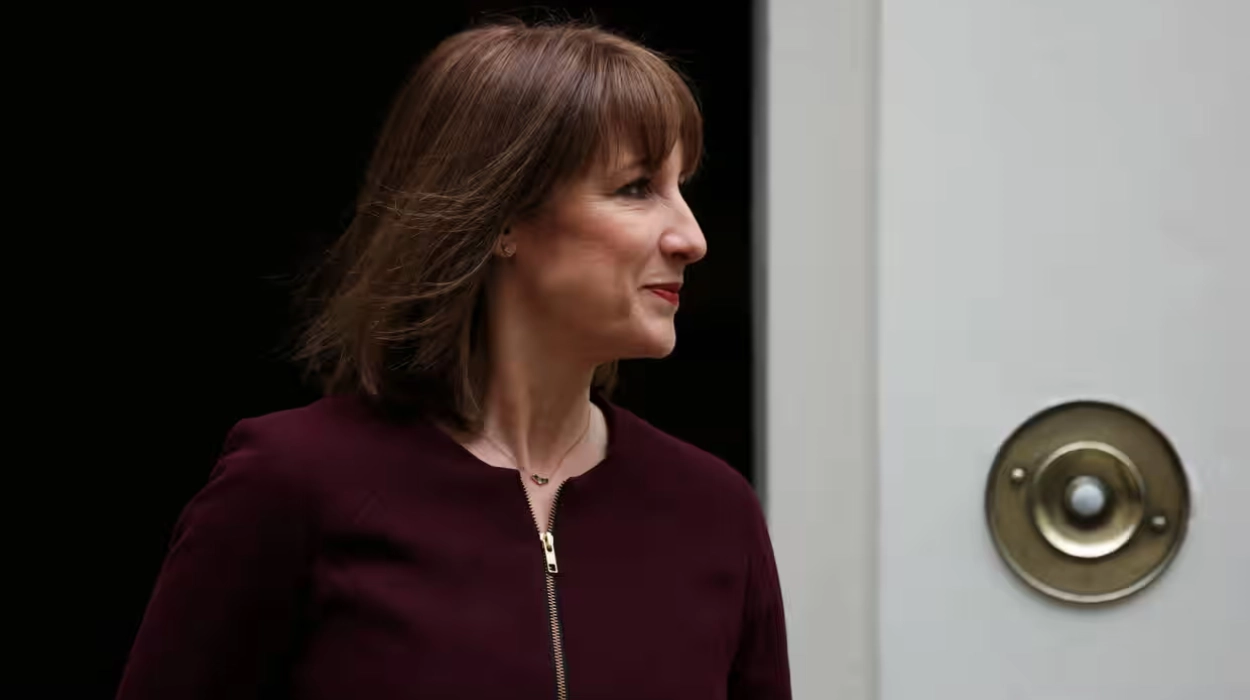UK (Parliament Politics Magazine) – The Institute for Fiscal Studies has warned that Chancellor Rachel Reeves may have to tax pensions and wealth if economic conditions worsen.
As reported by The Guardian, the IFS suggests that Ms Reeves may need to raise taxes on pensioners and high earners in the autumn budget if the economic downturn persists.
What did Paul Johnson say about economic risks and tax hikes?
The IFS director, Paul Johnson, warned that a “risky and changing world, as President Trump’s actions overnight on tariffs demonstrate all too well,” indicated that Reeves’s policies were already at risk of becoming outdated.
He stated,
“There is a good chance that economic and fiscal forecasts will deteriorate significantly between now and an autumn budget,”
adding,
“If so, she will need to come back for more, which will likely mean raising taxes even further.”
Mr Johnson raised concerns about the economic situation changing rapidly, and Reeves had left a historically small safety margin, which could vanish swiftly.
He said,
“That risks months of speculation over what those tax rises might be – a raid on pensions, a wealth tax on the richest, another hike to capital gains tax?”
The IFS director added,
“I mention those not to commend them, far from it, but to exemplify the kinds of taxes regarding which mere speculation about increases can cause economic harm. With no sense of a tax strategy, we have no idea which way the chancellor might turn.”
Mr Johnson stated that budget reductions would be hard to implement since Reeves was set to reveal her spending plans in June, leaving little space for adjustment. He also pointed out that making welfare changes would face hurdles due to criticism of the spring statement.
He suggested that maintaining the freeze on income tax and national insurance allowances would be the easiest option for Ms. Reeves to add around £10bn to Treasury funds.
The government may also target pensions, while adjustments to capital gains tax might impact wealthier individuals.
Mr Johnson said,
“One of the reasons I worry about pensions taxation is it looks like a nice juicy place to go for a lot of money.”
The IFS director stated that rumors regarding pension taxation caused individuals to alter their finances, despite the chancellor not changing the policy.
He stated,
“Given that she didn’t do anything back in that budget, I wish the chancellor had said ‘and I am not going to do anything for the rest of this parliament’, so I suspect we will have that speculation again.”
Will Trump’s trade war and Labour’s tax pledge strain UK fiscal plans?
The Office for Budget Responsibility warned that a worsening trade conflict under Trump’s policies could eliminate the chancellor’s financial leeway. Highlighting the volatility, Trump revealed a significant 25% tariff on US-bound car imports just hours after Rachel Reeves’ address.
Before the general election, Labour pledged to uphold strict fiscal rules, limiting further government borrowing. The party committed to keeping income tax, VAT, and national insurance steady and maintaining the corporation tax at 25%.
How is the chancellor responding to rising borrowing costs and fiscal challenges?
During a politically sensitive speech in the House of Commons on Wednesday, Ms. Reeves introduced a £14bn package to restore £9.9bn of fiscal space, in response to worsening public finances since autumn.
The increase in government borrowing costs on global markets follows internal economic factors and Trump’s policies, which pose a threat to global growth and inflation stability.
The Office for Budget Responsibility stated that without the chancellor’s spring statement measures, it would have faced a £4.1bn deficit, violating Reeves’ fiscal guidelines to keep day-to-day expenses covered by tax income.
What did Debbie Abrahams say about cuts to health and disability benefits?
Debbie Abrahams, the Labour chair of the work and pensions select committee, told the Commons,
“All the evidence points to the fact that the cuts to health and disability benefits will lead to increased poverty, including severe poverty, and worsened health conditions. How will making people sicker and poorer help to drive our economy up and get people into jobs?”
What did Neil Duncan-Jordan say about the policy’s impact?
Neil Duncan-Jordan, the MP for Poole, stated, “We are talking about people’s lives here – my constituents are frightened.”
He added,
“This policy will fuel the social determinants of poverty that ultimately create further pressure on the services the chancellor is trying to cut. And we know cuts won’t bring growth, they won’t create jobs – they will only create poverty.”


